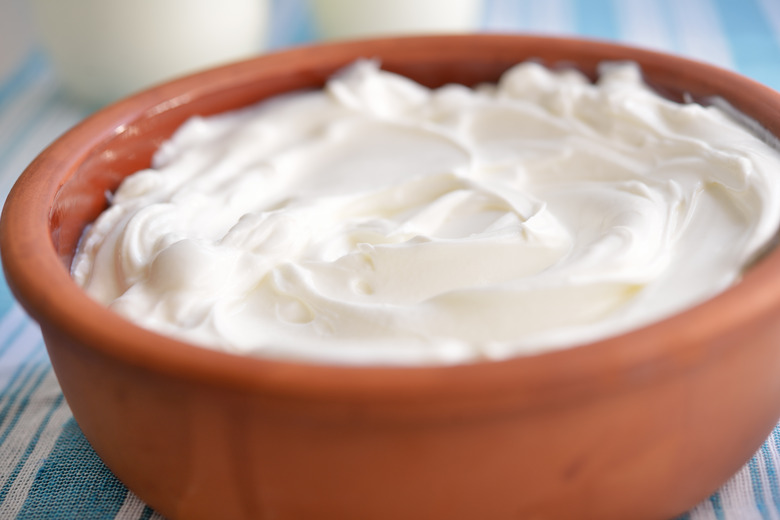Everyday Uses Of Biology
Biology, the study of living things, represents more than a subject in school. On Earth, biology pervades the surface and spaces underground as well. Humans in particular harness biology for every aspect of life.
TL;DR (Too Long; Didn't Read)
Biology pervades all aspects of everyday life. People rely on living things and their products for the food they eat, their homes, their personal care, their fuel and their medicines.
Foods and Beverages
Foods and Beverages
People consume biological products both to survive and for enjoyment. Livestock provide food for humans, and those animals in turn need their own food to survive. Plants provide endless options for food: feed for animals, fruits, vegetables, oils for eating or cooking and flavoring extracts. Beets and sugarcane can be made into sugar for sweetening. Honeybees use flower nectar and make honey. Sugar maple trees' sap can be boiled to make maple syrup. Coffee comes from coffee tree seeds, whereas tea originates from tea plant leaves.
Microbes and enzymes enable the creation of foods such as cheese, yogurt and bread. Barley, yeast and hops work together to make beer, with enzymes activated with the malting of barley and the yeast metabolizing in fermentation. Wine is made in similar fashion from grapes and other fruits.
Other biological processes aid in food production. Compost made from decaying plant and animal waste serves as a natural fertilizer for organic crops. Whether insect or bird, pollinators continue the process of plant life, giving humans and other animals food and beverages to eat and drink.
Clothing and Textiles
Clothing and
Textiles
People wear clothing made from biological substances. Cotton provides material for many clothing items. Linen, made from flax, is another plant-based fabric. Even polyester is made from biomass in the form of fossil fuels. Plants provide the basis for fabric dyes and nylon. Carpets, upholstery, curtains, towels and countless other household textiles are made from plants.
Beauty and Personal Care
Beauty and Personal
Care
Biological sources make up the ingredients for many personal care and beauty products. Shampoo, henna dye, lotion, cosmetics, perfumes, diapers, loofahs, nail polish remover and soap represent only a few examples of biology-based everyday items.
Transportation and Leisure
Transportation
and Leisure
Tires are made from the rubber of the rubber tree. Wood serves as the source for sports equipment such as baseball and cricket bats, bowling pins and lanes. People often play sports on living grass turf. Musical instruments such as clarinets, violins, drumsticks, drums and pianos contain biologically sourced components. Many boats are still made of wood, as are docks. Boaters still use plant-based ropes.
Buildings
Buildings
Many homes around the world are built from plants. Wood from trees provides framework for houses and other buildings and the furniture within them. Rugs and other floor covers are made from wood, cork, fibers and linoleum, all plant-based. Paper from wood, erasers from rubber, inks, pens and pencils all derive from plants.
Fuels
Fuels
Many fuels used today originated from a biological origin. Fossil fuels such as petroleum and natural gas formed from decayed plant and animal matter. Modern biofuels are made from plant material. Ethanol made from plant sugars is blended with gasoline to increase fuel efficiency. Algae, corn, wheat, rapeseed oil and sugar beets provide the basis for biofuels. This opens up a relatively new realm of renewable fuel to counteract carbon emissions.
Healthcare and Medicine
Healthcare and
Medicine
Doctors, nurses, and other medical staff must study biology to learn how to aid both humans and animals. Learning about the human body's inner processes, organs, neurological system, blood, reproduction, development and diseases all prove essential for treatment and research.
Biological items also aid medicine. Many medicines contain plant-based ingredients. Aspirin was derived from the acetylsalicylic acid found in willow tree bark. Foxglove provides the basis for a heart medication. The anti-cancer drug Taxol is another example of a biologically derived medicine. Plants even form the basis for bandages, whether cotton or latex.
The realm of biotechnology also stands at the forefront of healthcare options. Additionally, many biological products are regulated for medical science and research use. Among these, blood and blood components, human tissue, monoclonal antibodies and proteins such as enzymes and growth factors all contribute to vital research for new medicines. Biology is far more than a school subject; it aids in making life better for everyone on Earth.
Cite This Article
MLA
Hermance, Dianne. "Everyday Uses Of Biology" sciencing.com, https://www.sciencing.com/everyday-uses-biology-8660410/. 11 April 2018.
APA
Hermance, Dianne. (2018, April 11). Everyday Uses Of Biology. sciencing.com. Retrieved from https://www.sciencing.com/everyday-uses-biology-8660410/
Chicago
Hermance, Dianne. Everyday Uses Of Biology last modified August 30, 2022. https://www.sciencing.com/everyday-uses-biology-8660410/
